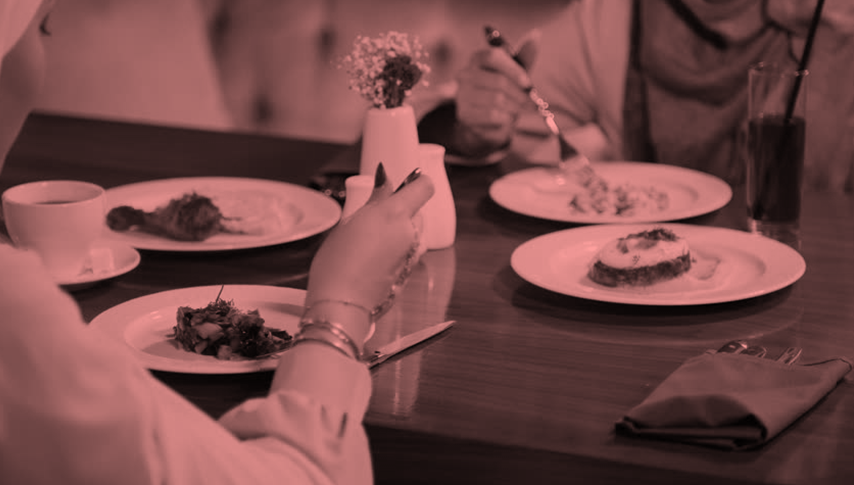Answered by Shaykh Yūsuf Badāt
Question:
Dinner time for my family is when we all get to be together as a family. This is when we talk about the day’s events. However, I have heard from a family friend who once observed my family having dinner that we should not talk at all while eating. What is the etiquette of eating in Islam?
Answer:
In the Name of God, Most Merciful, Most Kind
Jazāk Allāh Khayr/ Thank you for your question.
Shaykh ʿAbd Al-Faṭṭāḥ Abū Ghuddah writes, “It is preferred that eating should not be conducted in silence. It is good manners to talk during meals. Topics should be nice stories suitable for eating”. (Islamic Manners)
Imam Nawawī states, “Narrations show that it is recommended to talk whilst eating, so as to put those dining, at ease”. (Sharḥ Al-Muslim)
There are numerous reports from the companions substantiating the Prophet (peace and blessings upon him) talked, discussed and advised while eating. (See Bukhārī, Muslim, Tirmidhī, Abū Dāwūd & Nasaī)
Here is an example of the Prophet (peace and blessings upon him) discussing matters, whilst eating:
Abū Hurayrah (may God be pleased with him) narrated, “We were in the company of the Prophet (peace and blessings upon him) at a banquet and a cooked (mutton) foreleg was put before him, and he used to like it. He ate a morsel of it and said, “I will be the chief of all the people on the day of resurrection. Do you know how God will gather all the first and the last (people) in one level ground, where an observer will be able to see (all) of them and they will be able to hear the announcer, and the sun will come near to them. Then some people will say, “Do you not see, in what condition you are and the state to which you have reached? Why do you not look for a person who can intercede for you with your Lord?” Some people will say, “Appeal to your father, Ādam.” They will go to him and say, “O Adam! You are the father of all mankind, and God created you with His Own Hands, and breathed into you the Spirit which He created for you and ordered the angels to prostrate for you so they did, and made you live in Paradise. Will you not intercede for us with your Lord? Do you not see in what (miserable) state we are, and to what condition we have reached?” On that Ādam (peace and blessings upon him) will reply, “My Lord has become angry as He has never become before and will never become thereafter; (besides), He forbade me (to eat from) the tree, but I disobeyed (Him), I pity upon my own condition! I pity upon my own condition! Go to somebody else; go to Nūḥ.” They will go to Nūḥ and say, “O Nūḥ! You are the first amongst the Messengers of God to the people of the earth, and God named you a thankful slave. Do you not see in what a (miserable) state we are and to what condition we have reached? Will you not intercede for us with your Lord?” Nūḥ will reply, “Today my Lord has become angry as He had never become before and will never become thereafter. I pity myself! I pity myself! Go to the Prophet (Muḥammad peace and blessings upon him).” The people will come to me, and I will prostrate myself by God’s Throne. Then I will be addressed, “O Muḥammad! Raise your head! Intercede! For your intercession will be accepted, and ask (for anything), for you will be given.'” (Bukhārī)
For many families, meal time is one of the few occasions where members of the household have a meaningful informal conversation together. Thus, moderate discussions while eating will prove beneficial in maintaining family bonds, as long as the conversation topics are sound and permissible in light of the Islamic law.
For further reading on eating etiquettes, please refer to the book ‘Islamic Manners’ authored by Shaykh ʿAbd Al-Faṭṭāḥ Abū Ghuddah, which is readily accessible in print and also online.
And Allāh Knows Best




